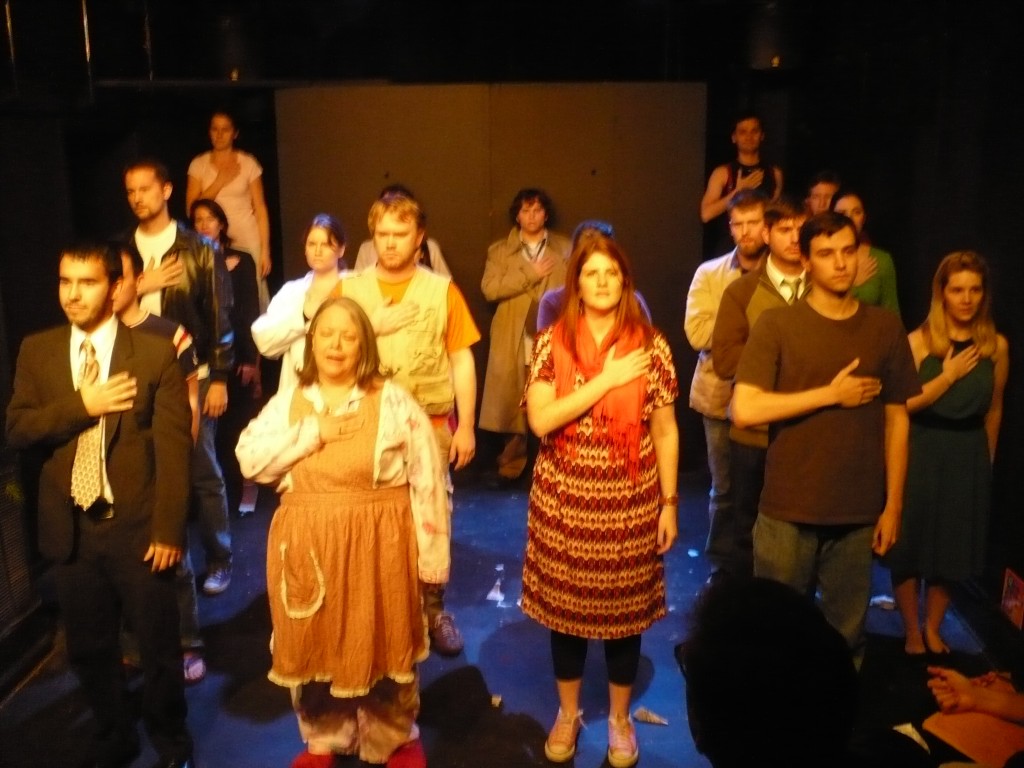 Cut to the Quick
Cut to the Quick
John Beer
The days are getting shorter, the nights are getting colder, and a festival of brief, wickedly dark plays seems exactly what November and December require. Kudos, then, to the Side Project for setting out this smorgasbord of dysfunctional relationships, psychotic Iraq War vets and your basic, garden-variety fuckups. Cut to the Quick offers a variety of viewing options: The two-hour sets “Splinters and Shrapnel” and “Static/Cling” each proffer a handful of 30-minute works, while “Splayed Verbiage” is an evening of ten-minute sketches.
Like any such offering, the festival has its low points. Some of the plays mechanically work out cute, workshoppy premises, while others drift about displaying their artiness like escapees from Dan Aykroyd’s old Bad Playhouse sketches. “Splayed Verbiage,” in particular, is almost sunk by the decision to close with Wilderness Sarchild’s Slave Day, the kind of play only nostalgists for collegiate tolerance-awareness seminars could love.
But at its peaks, and there are several, Cut to the Quick provides strikingly original and chilling dramatic visions. Throughout, the caliber of direction and performance remains high, reinforcing the Side Project’s status as one of the city’s premier storefront destinations.
Of the ten-minute plays, Brian Golden’s Not That (But Something Else) stands out. Golden exploits a seemingly simple idea—company members serially announce what the play is not about—to create a panoramic view that acknowledges both the clichés that plague contemporary theater and its potential for transcending those clichés to speak to real human needs. And Laurel Haines’s 78 cleverly pushes against its ten-minute boundaries to present the ecstasies and sorrows of a relationship from birth to death.
“Static/Cling,” probably the strongest of the three collections, contains two remarkable new works. Daniel Talbott’s What Happened When leans heavily on the overly familiar prop of sexual abuse to explain two brothers’ dismal relationship. But Talbott clamps down tightly on his language to create a work of spare and haunting power. Under Anna C. Bahow’s direction, Nate Santana and Michael M. Peters manipulate pauses and taciturn revelations, generating an air of Pinterian menace. The fest’s longest play, Michael John Garces’s hour-long frag, is a chilly, fragmented examination of a family tearing itself apart in the wake of a son’s apparent nighttime career as a serial rapist. Jay Worthington’s performance of genuine evil, along with his winning turn in the ten-minute Yes to Anything, announces him as a serious new talent.
Although “Splinters and Shrapnel” has less of a revelatory thrill than “Static/Cling,” Robert Tenges’s Three Hymns of Apathy is a neat set of paired monologues, ably delivered by Erin Shelton and Otis Fine. And Sean Graney’s Autophagy, a play about a robot gone bad, featuring a long song about self-eating, is perhaps the Hypocrites founder’s best realization thus far of his peculiarly distancing Grand Guignol style.






